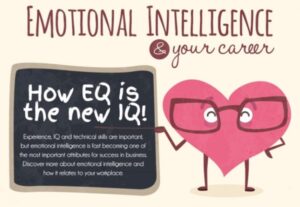Bert Botta Aviation Expert CV
https://seakexperts.com/members/16027-bert-botta
Bert Botta, Captain
TWA/NetJets (ret)
Email: bert@bertbotta.com
How Emotional Intelligence Can Be Key to Winning a Case!
You can be smart as a whip intellectually and be an emotional dunce!
A high IQ has little relevance to a high Emotional IQ (EQ)
We all know people who are very sharp intellectually but lack “common sense.”
Brain smarts often get people in trouble
Because brain smart people often rely solely on their
Brains to figure things out, thereby missing out on
Emotional clues that tell a whole different story
What is Emotional Intelligence?
Simply put, Emotional Intelligence is the ability to sense one’s own feelings and emotions as well as pick up on someone else’s feelings and emotions.
When you can do that it gives you an edge, a competitive edge, if you know how to use it.
Emotional Intelligence is lacking in most people because they react instead of respond to stress and life in general.
When you have the ability to respond to situations, that emotional edge gives you an immediate advantage.
Why a High Legal EQ Can Help Win a Case!
Most people have low Emotional Intelligence or low EQ.
Emotional intelligence isn’t taught in school.
If you’re lucky, you have it in your DNA or you inherit it from good parents or a mentor.
Most people are ruled by and run by their emotions.
We’ve all been here!
You know the drill in a deposition when opposing counsel gets you “in an emotional corner.”
You either react irrationally and emotionally or you handle it well, with a high level of EQ! (Your good EQ response leads to great referrals!)
Why Brain Smarts Don’t Always Win in Court
Brain smarts have very little to do with Emotional Smarts.
Emotionally smart people can “read” others and use that to their advantage.
They can “pick up” on the emotions of others.
Those emotions tell them something.
When you know your feelings/emotions and the feelings of others, you aren’t easily fooled.
Because that gives you a “competitive” edge
Over others with a high IQ who are considered to be “smart”
This all takes training so you can learn
(1) What you’re feeling
(2) What it’s telling you
(3) How you’re reacting or responding to those feelings
(4) What to do with them and then
(5) How to respond, not react…
10 Deceptively Simple Tips to Increasing Your Legal EQ
These are some very simple but effective tips that I have found helpful.
Now they come naturally, most of the time.
1. “Reach out and touch someone.” (In today’s paranoid culture, be careful how you use this one!) It’s been proven that a simple, often apparently unnoticed touch when you’re talking to someone, “bonds” you in some small but important way.
2. Introduce yourself to others first rather than waiting for them to do so. This gives you the advantage of getting their first name which leads to…
3. REMEMBER THEIR NAME! This takes practice since we’re so focused on our own agenda that their name usually just flies by.
4. USE first names. This is an oft overlooked, yet powerful way to convey to another person that you care about them. As you go about your day, observe how few people use first names in conversation.
Also notice how impersonal that feels and how those people who do use someone’s first name seem to get a better response.
5. Compliment others when you recognize a job well done or see someone who goes out of their way to help in a situation.
6. Recognizing and complimenting someone’s efforts is a great way to cultivate a “servant’s” heart.
Look for ways to help others without a reason to do so. It’s the old, “Practice random kindness and senseless acts of beauty.”
7. Concentrate on asking other people how they’re doing. And then…..wait for their answer and listen with passion!
Too often we’re rehearsing our own agenda in our head and could care less about their response. This drastically lowers your EQ!
8. Listen more. It’s amazing how great a conversationalist people think you are when you just listen to them.
9. Let go of perfection. That doesn’t mean not being accurate. Perfectionism is different than accuracy.
10. Focus and expand on the positive in situations, people and events.
This is obviously not a complete list of EQ qualities. Come up with your own.
Sometimes the best way to do this is to examine your own life and the areas where you rank low in EQ and just do the opposite!
That would be a good place to start.
If any of this makes sense, here’s an EQ quiz that you can take: http://www.ihhp.com/free-eq-quiz.
After you take the test, if your results don’t meet your expectations get back to me and let’s talk.
I’ll “see” you in court…..
Bert
https://seakexperts.com/members/16027-bert-botta
About the author




